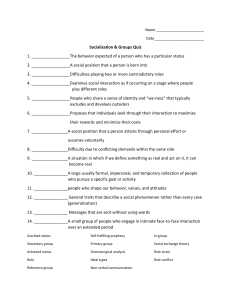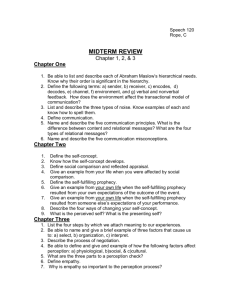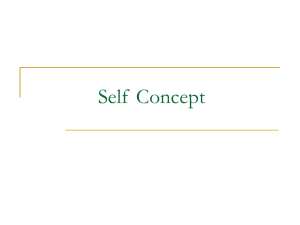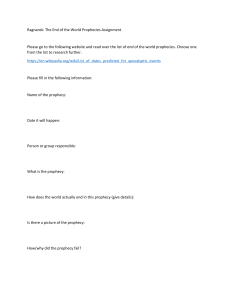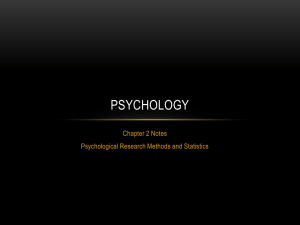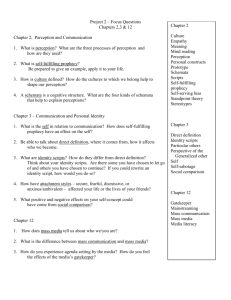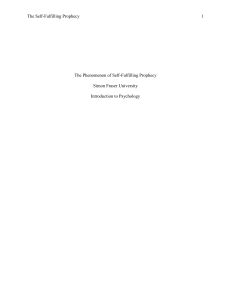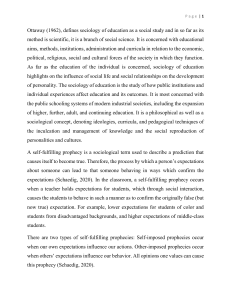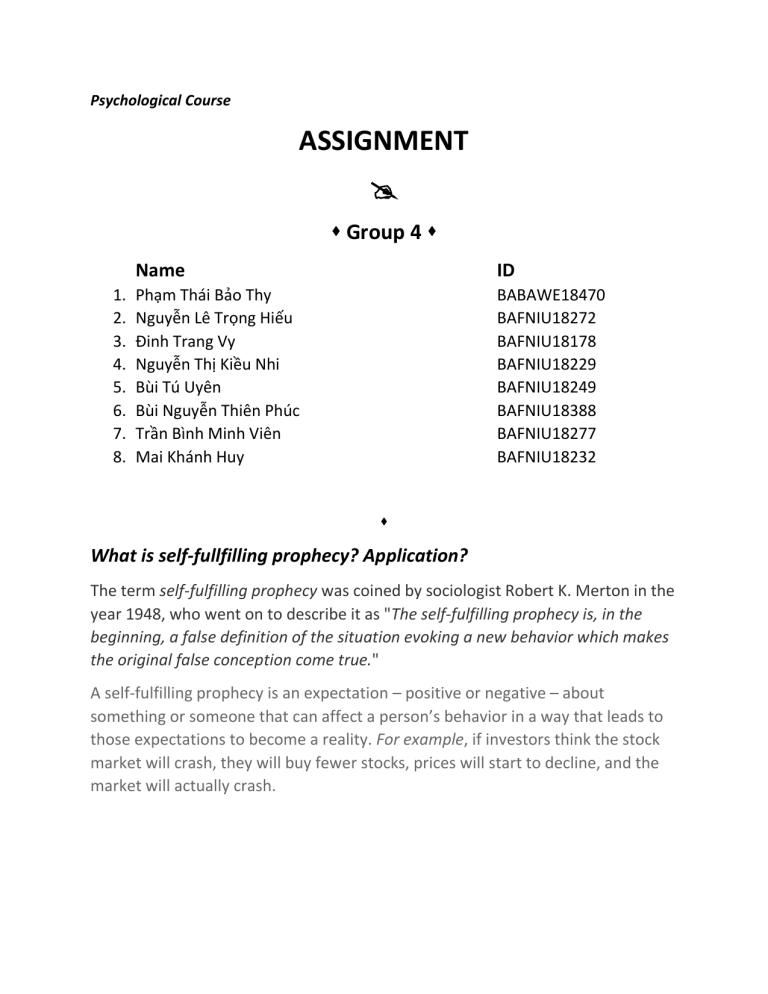
Psychological Course ASSIGNMENT Group 4 1. 2. 3. 4. 5. 6. 7. 8. Name ID Phạm Thái Bảo Thy Nguyễn Lê Trọng Hiếu Đinh Trang Vy Nguyễn Thị Kiều Nhi Bùi Tú Uyên Bùi Nguyễn Thiên Phúc Trần Bình Minh Viên Mai Khánh Huy BABAWE18470 BAFNIU18272 BAFNIU18178 BAFNIU18229 BAFNIU18249 BAFNIU18388 BAFNIU18277 BAFNIU18232 What is self-fullfilling prophecy? Application? The term self-fulfilling prophecy was coined by sociologist Robert K. Merton in the year 1948, who went on to describe it as "The self-fulfilling prophecy is, in the beginning, a false definition of the situation evoking a new behavior which makes the original false conception come true." A self-fulfilling prophecy is an expectation – positive or negative – about something or someone that can affect a person’s behavior in a way that leads to those expectations to become a reality. For example, if investors think the stock market will crash, they will buy fewer stocks, prices will start to decline, and the market will actually crash. How self-fulfilling prophecy works? A self-fulfilling prophecy can be described as a false prediction of a situation which alters one's behavior and attitude, which, in turn, causes the prediction to come true. This means that, by thinking of an outcome, we model our behavior and actions to lead to that exact outcome even though it might not have necessarily turned out that way. Application of self-fulfilling prophecy: In treatment: Examples of a self-fulfilling prophecy is that of the famous placebo effect. In this, a patient is given a tonic and told that it is one of the most powerful and effective medicines that will get them feeling better in no time. In reality, the 'medicine' is not really a medicine and it does not have any extraordinary powers. But because the patient is not aware of this, he really believes that he has been given a powerful med that will get him better in no time. Because of this positive thinking, he constantly sends a message to his brain that he will get better, which in turn enhances his immune system and he ends up getting cured―just like he was told he would. In education: A famous experiment called the 'Oak School Experiment' was conducted in 1968 by psychologist Robert Rosenthal to study the concept of selffulfilling prophecy in relation with teachers and students. An IQ test was conducted and the teacher was told that a specific group of students were gifted and special (in reality, a random group was selected). They tested the students after a lapse of 8 months and found that the students whom they had called 'special' showed a significant increase in their IQ over those who were not a part of this group. This happened because the teacher was told that they were gifted, and so her general attitude towards them was different, she encouraged questions, provided extra help, smiled more. This confidence that the teacher showed in the students caused them to work hard, thus leading to better scores and improving their IQ. In marketing budgets: Consider the typical budgeting process in most businesses. When a new product is launched, analysts predict demand and make budgeting decisions based on their estimates. A product that is expected to have lukewarm demand will only get a moderate marketing budget. A moderate marketing budget probably won't spur that much demand. So, the product ends up getting a lukewarm response.
